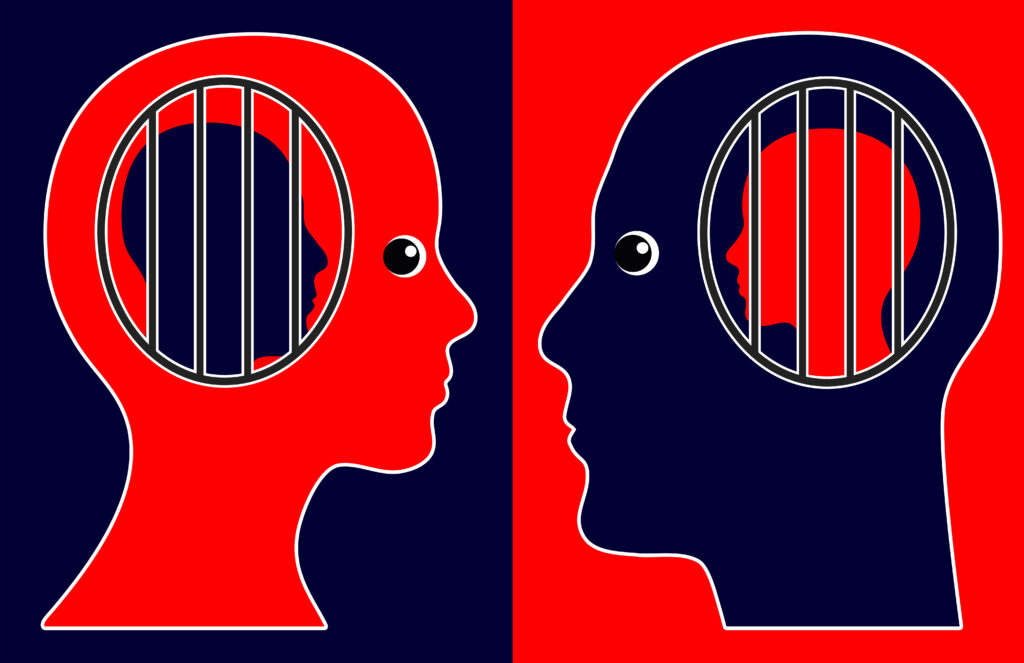
Last summer, the Biden administration took an unprecedented and, to my mind, dangerous step when it pushed Facebook to block the accounts of twelve prominent vaccine critics.
The move was fueled by a report from the UK-based Center for Countering Digital Hate (CCDH) which stated that these individuals are responsible for 73% of all anti-vaccine content on Facebook, and 65% of all shares of such content across social media.
The so-named “Disinformation Dozen” includes Joseph Mercola, Robert F. Kennedy, Jr, Sherry Tenpenny, Sayer Ji, Kelly Brogan, Christiane Northrup and others who have been vociferous vaccine critics long before COVID.
The White House drew heavily from CCDH’s language as it leaned on Facebook—an effort that was only partially effective. The people on CCDH’s list are still findable on Facebook, though much vaccine-related content has been squelched.
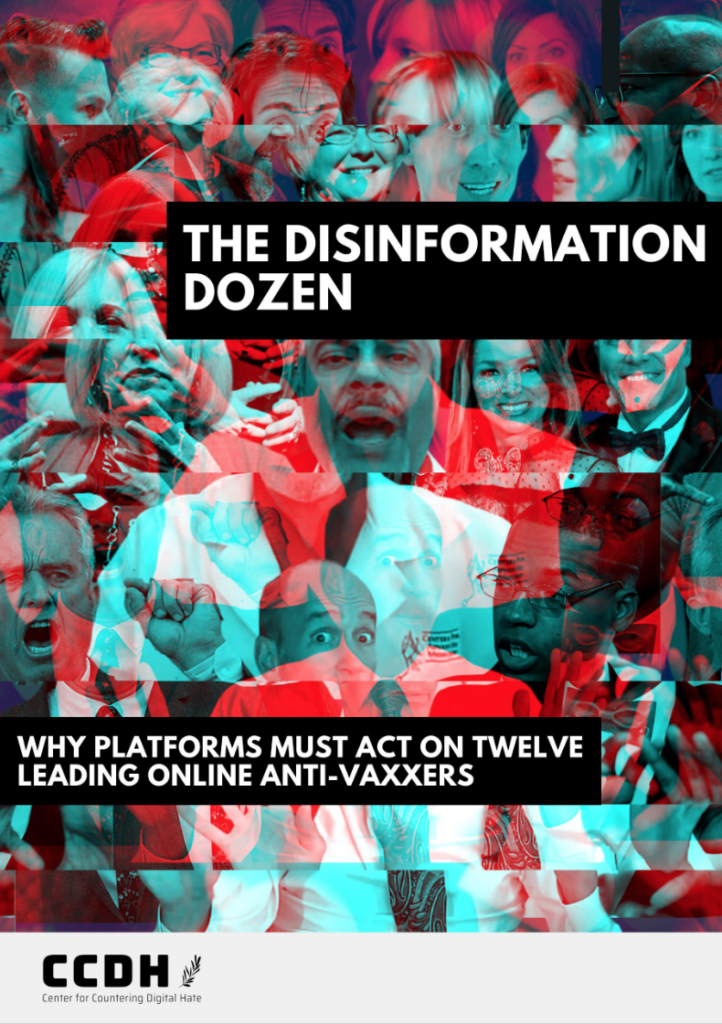
CCDH is a non-profit headed by former investment banker and UK parliamentary advisor Imran Ahmed. Its stated mission is “to disrupt the architecture of online hate and misinformation.” The Disinformation Dozen report urges social media platforms to take swift action to stem the spread of vaccine misinformation by—among other things– de-platforming the individuals listed.
Before going further, I want to state that I am not “anti-vax.” I am vaccinated against COVID-19, as are all of HPC’s key team members. I believe vaccines do play a role in mitigating the severity and scope of the pandemic. Though they’re clearly not 100% effective, nor entirely free of adverse events—very few medical interventions are—the benefits seem to outweigh the risks, on a population level.
Likewise, Holistic Primary Care has never taken an “anti-vax” or anti-pharma stance, though we have published articles that could be considered vaccine-critical, and we do report on the detrimental ways in which entrenched corporate interests– pharma, health insurance, or information technology–affect the practice of medicine.
I am familiar with most of the people on the Disinformation Dozen list. I’ve had my own qualms about the manipulative, fear-mongering tactics some use to attract attention, build followings, and market products. Some of them spout sheer lunacy, others use deliberately provocative language to gain attention. I share many of CCDH’s core concerns.
Dangers of Censorship
That said, the administration’s attempt to push Facebook into censorship is problematic for several reasons.
For one, government involvement in the exchange of information is always a slippery slope. There’s a fine line between barring deliberate misinformation and censoring legitimate dissent. It is never easy to find the balance between the sometimes conflicting ideals of open communication and truthful communication. In our era of gang-fight politics and high-stakes economics, that task is even more difficult.
In the long term, the pandemic of distrust will be far more threatening to the wellbeing of the nation than SARS-CoV-2 or any other pathogen. And it will be even more difficult to cure.
By its nature, the internet is a bewildering vortex of facts, quasi-facts, extrapolations, opinions, outright fabrications, and manipulative marketing tactics. One could argue—and many have—that the government and the major online media players need to do more to create a level, honest playing field for exchange.
But when the government presses a private company to censor specific individuals, it has crossed a line into direct state control of information and opinion. That makes me nervous.
Dissent vs Hate
Secondly, it is troubling that the CCDH—and by extension the White House—has conflated vaccine dissent with “online hate.”
According to the organization’s name, hate speech is CCDH’s main focus. Why, then, is this group concerning itself with vaccine dissent?
In its mission statement, CCDH says it is committed to neutralizing what its founders see as a “Digital Counter Enlightenment”—a confluence of fringe movements trafficking in racism, ethnic nationalism, anti-feminism, denial of climate change, and medical misinformation. CCDH contends that these movements work together to erode tolerance and democracy.
The concerns are legitimate, and CCDH’s campaigns raise important issues.
There’s no question some vaccine critics perpetuate factually inaccurate, biased, or otherwise debatable claims. That constitutes misinformation—of which there is a plethora online, and not just about medical subjects. But it is not necessarily driven by hate, or a desire to destroy democracy.
To equate vaccine skepticism with “online hate” sets a dangerous precedent; it categorically vilifies critics of a particular medical intervention as purveyors of malice. What if that standard is applied to people who publicly question other conventional “standards of care”?
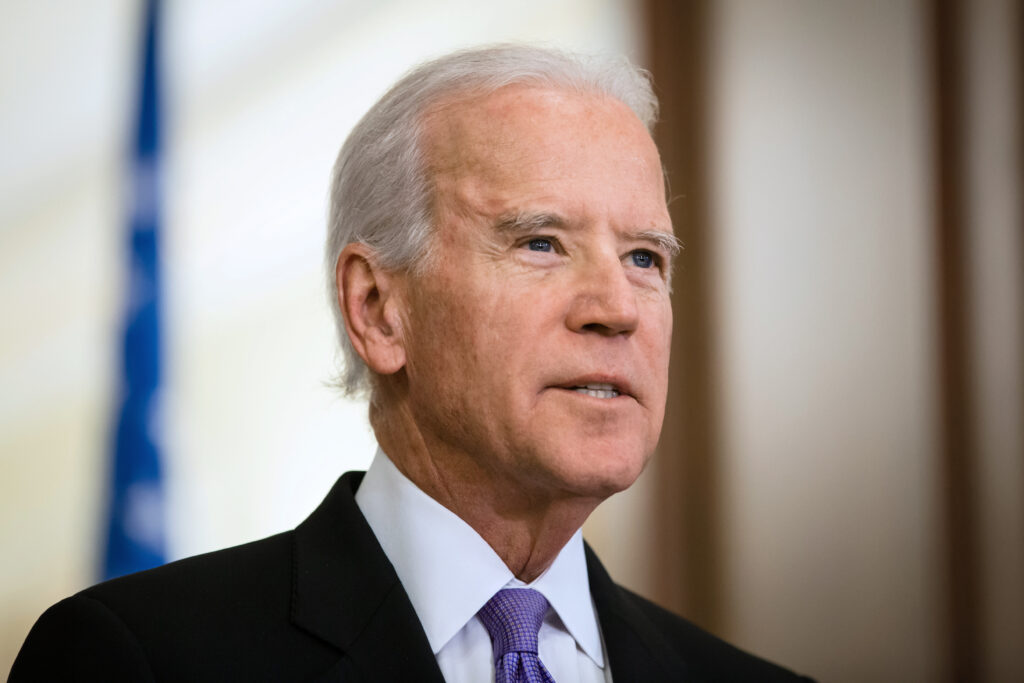
CCDH and the Biden administration may be earnest in wanting to safeguard public health by quelling the deliberate spread of false information.
But not all dissent from scientific consensus is misinformation. And the algorithms used by social media platforms are not known for their nuance or discernment. Any campaign to rid the internet of fake news and hate speech also runs the risk of squelching all debate, thereby destroying the very tolerance the campaigners wish to protect.
Economic Motives
CCDH repeatedly points out the economic motivations of vaccine critics, contending that “the most influential anti-vax entrepreneurs use Facebook as the mouth of a marketing funnel that directs potential customers from social media content to newsletter signup pages, and from there to free video content and finally paid content or products.”
Societies do not function well when vast segments of the population have lost basic belief in the goodwill of the people and institutions meant to serve them.
CCDH also holds that the social media accounts of those on its list are backed by non-disclosed for-profit companies and/or non-profit groups working in tandem to create a shadow industry of medical misinformation. The social media companies themselves are pulling in up to $1 billion annually from advertising and other revenue streams associated with the “anti-vaxx industry,” CCDH claims.
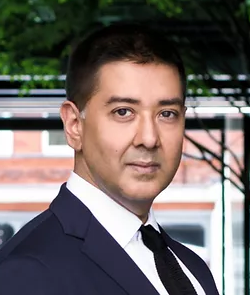
“They want to persuade people not to trust doctors, and to trust them instead. So they can sell them false cures and books, access to websites, access to their email platforms. Which gives them data which they then can monetize in other ways,” says Mr. Ahmed in an interview with the Denver Museum of Nature & Science’s Institute for Science & Policy.
Some vaccine critics have indeed built lucrative online businesses selling information, health products, or both. That’s opportunism, but not necessarily hate.
Further, the CCDH itself is not fully transparent about its own funding. Its website states only that it is supported by “philanthropic trusts and members of the public.” A group that calls out the financial interests of others ought to be more up front about its own.
And it is not like vaccine-makers operate as charities. According to a report in Health Affairs last Spring, the federal government spent nearly $12 billion in advance purchases of the Pfizer, Moderna, and Johnson & Johnson vaccines. That’s on top of the billions of public dollars invested in private sector vaccine development.
High Stakes
I realize there’s a lot at stake here. COVID has so far killed 5.6 million people worldwide, according to Worldmeters.info, and over 900,000 in the US. The Biden administration, and most medical professionals, believe vaccines—imperfect though they are—remain our best bet for mitigating the pandemic.
Not all dissent from scientific consensus is misinformation. And the algorithms used by social media platforms are not known for their nuance or discernment.
Some use the “Yelling ‘Fire’ in a movie theater” analogy to justify censorship of vaccine dissent. The simple logic goes: vaccine skeptics discourage people from getting the shots, which raises the odds of transmission and disease severity, which puts others at risk and burdens the healthcare system. Therefore, anti-vaxxers cause harm to others.
On one level that argument holds. But it misses important nuances. In the movie theater analogy, the shouter intentionally causes chaos for its own sake. The moviegoers are all at equal risk of being trampled, and they have no recourse.
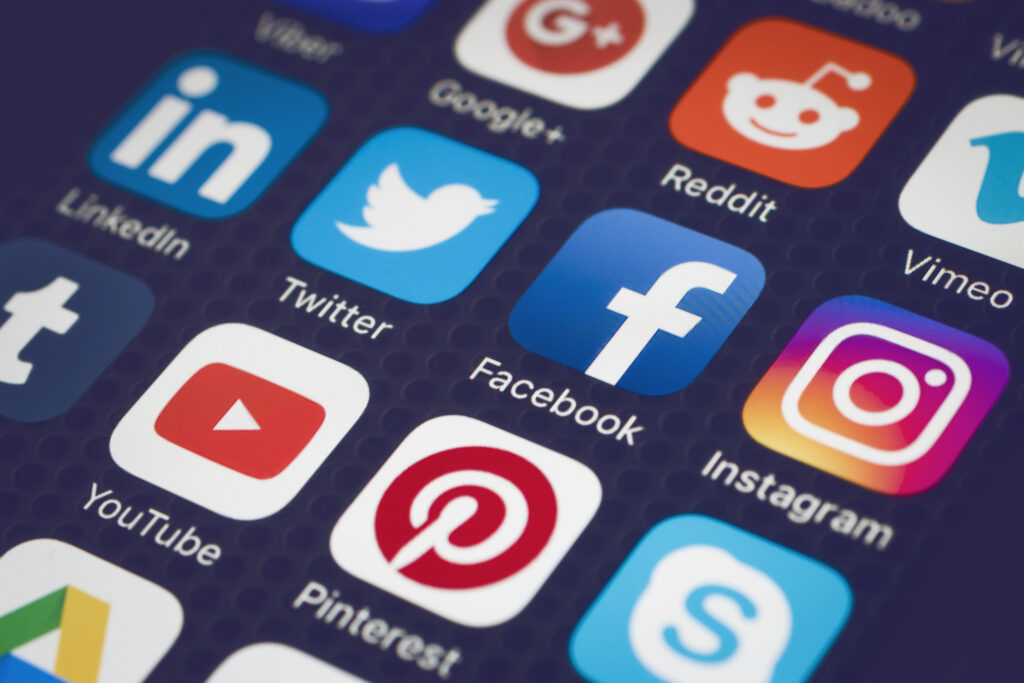
The COVID scenario is different. It is wrong to assume all vaccine critics deliberately aim to cause harm. Some might have malicious motives, and others may be capitalizing on fear. But still others have earnest concerns about safety, the encroachment of government mandates in a ‘free’ society, or both.
Further, those of us who do believe vaccines are protective still have the option of getting the shots. Unlike the hapless moviegoers, we can still mitigate our own risk.
The movie theater argument would be stronger if vaccines delivered ironclad efficacy against viral transmission. The Omicron surge has shown that at least in terms of viral transmission, the shots are only partially effective. Many vaccinated people got–and presumably transmitted–Omicron. While the vaccines mitigated the odds of severe disease, some of these people did get pretty sick.
But all the arguments for or against censorship miss a critical point: people make their decisions about vaccines based on what and whom they trust—and what they distrust.
Why People Resist
The truth is, beneath the SARS-CoV-2 pandemic is a raging pandemic of distrust. Many people no longer trust that elected officials, the mainstream medical systems, or the corporate world have their best interests at heart. If someone does not trust the source, no amount of data will be convincing.
It is easy to broad-brush all vaccine critics as irrational, anti-science reactionaries drunk on QAnon and caught up in Braveheart fantasies. But to do so is intellectually lazy and inaccurate.
While some fit the stereotype, others are intelligent, well-read, and reasonable. They are also quite diverse, and they are refusing the shots for different reasons.
Some—especially those with autoimmune diseases or histories of adverse vaccine reactions—are legitimately concerned about safety. They’re not reassured by population stats, and they resent being ostracized as selfish or ignorant simply because they fear potential reactions.
Statistics and epidemiology are, essentially, sciences of generalization; adverse effects are individual experiences. In the age of personalized medicine, this perspective has some traction.
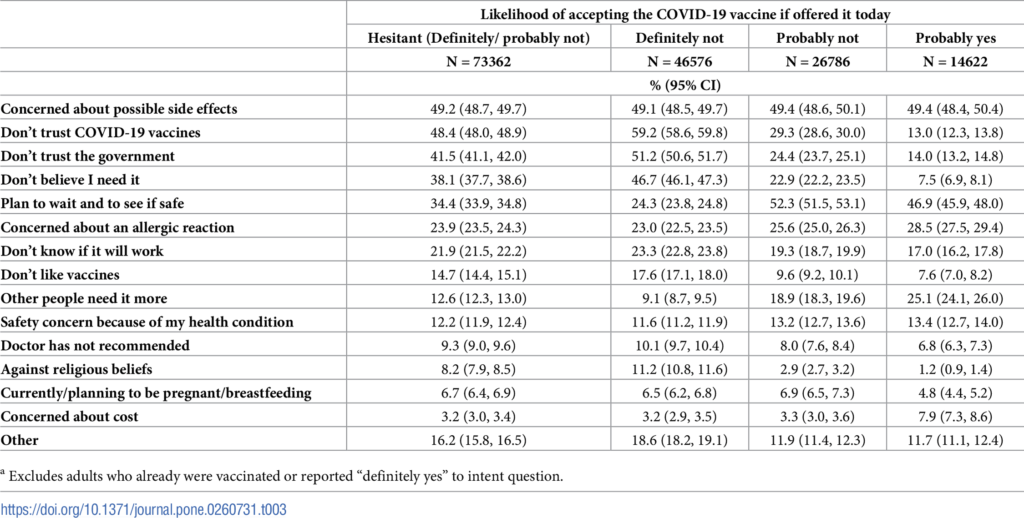
Other vaccine resisters point out that the government and most of mainstream healthcare have put all the public health eggs in the vaccine basket, while ignoring or dismissing other potentially protective interventions. And I’m not talking about controversial off-label drugs like ivermectin or hydroxychloroquine, but simple, safe, low-cost things like vitamin D, zinc, quercetin, N-acetyl cysteine…the list is long.
It’s true there’s no ironclad evidence that any of these prevent COVID. But for many of them—and especially for vitamin D–the epidemiologic patterns are clear and consistent, and the mechanisms of action are plausible. It is right to ask why there’s been so little public health interest in these cheap, widely accessible, and potentially helpful agents.
Many people simply do not trust Big Pharma, and with good reason. From the opioid crisis to predatory drug pricing, Big Pharma has provided plenty of fodder for mistrust. Biotech has been anything but transparent about the flow of genetically modified organisms into agriculture and food production, and the federal government has never required disclosure. Are you surprised that a lot of people are nervous about vaccines based on genetic manipulation of viruses?
It is easy to broad-brush all vaccine critics as irrational, anti-science reactionaries drunk on QAnon and caught up in Braveheart fantasies. But that’s intellectually lazy and inaccurate. While some fit the stereotype, others are intelligent, well-read, and reasonable. They are also quite diverse, and they are refusing the shots for different reasons.
Federal protections that shield vaccine-makers from liability, like the National Childhood Vaccine Injury Act of 1986, made law by Ronald Reagan, and the Public Readiness and Emergency Preparedness (PREP) act instituted by the George W. Bush administration in 2005, also fuel public distrust. These laws strike a lot of people as evidence of government-corporate collusion.
Many people of color have a general distrust of medical institutions—and with good reason. Historically, white physicians and hospitals perpetrated heinous atrocities on black people—the Tuskeegee experiments, the harvesting of Henrietta Lacks’ cervical tissue without consent, J Marion Sims’ operations on non-anesthetized black women are but a few examples.
Up until the 1950s, medical wisdom held that black people are less sensitive to pain than whites—a belief that persists today. Ancestral memories run deep, especially when they’re constantly triggered by racial biases and disparities still prevalent in today’s healthcare.
In immigrant communities, and especially among undocumented immigrants, there’s a fear that showing up for COVID shots raises risk of deportation. That fear may be unfounded, but there’s enough anti-immigrant sentiment, mistreatment of undocumented people, and inaction on rational immigration policy to prompt many immigrants to keep a very low profile.
Some people object to the vaccines on religious grounds, though none of the major religions provide overt doctrinal support for an anti-vax stance. Religious objection may irk public health-minded medical folk, but it’s difficult to counter in a nation that promises freedom of religion.
Finally, there are many people across the political spectrum who are concerned about the rise of authoritarianism and the use of technology to impose social control. Public health is a convenient pretext for constraining civil liberties, and some see vaccine mandates and immunity passports as evidence of a totalitarian slide.
To find cause for that concern, one need only look at China’s relentless pursuit of a “zero COVID” goal (after initially denying the reality of the virus in late 2019). Total eradication seems like a noble ideal on paper. In practice, it is clearly repressive.
On top of all these concerns, there’s been so much corruption, malfeasance, and despicable behavior among politicians regardless of party affiliation, that it should be no big surprise that so many people are distrustful.
Societies do not function well when vast segments of the population have lost basic belief in the goodwill of the people and institutions meant to serve them.
In the long term, this pandemic of distrust will be far more threatening to the wellbeing of the nation than SARS-CoV-2 or any other pathogen. And it will be even more difficult to cure.
I don’t know how we remedy this social malaise, how we restore public trust. But I know the problems will not be resolved through censorship, vilification, and blame-casting. This illness needs a different kind of medicine.
END







